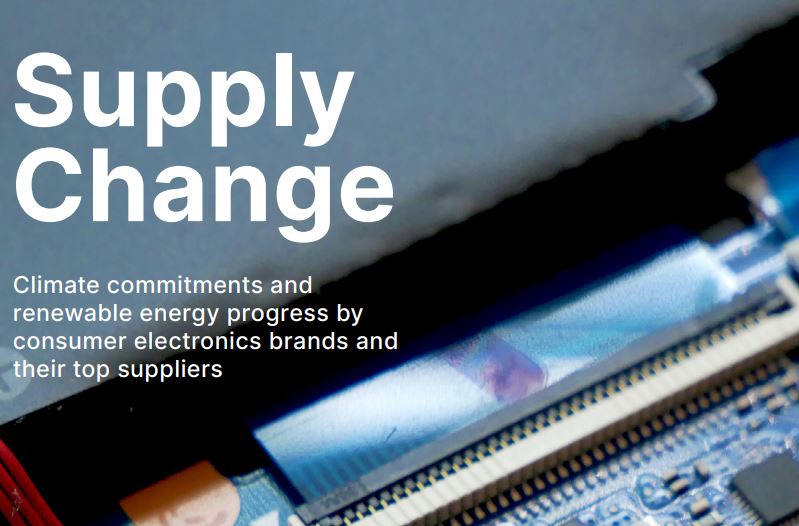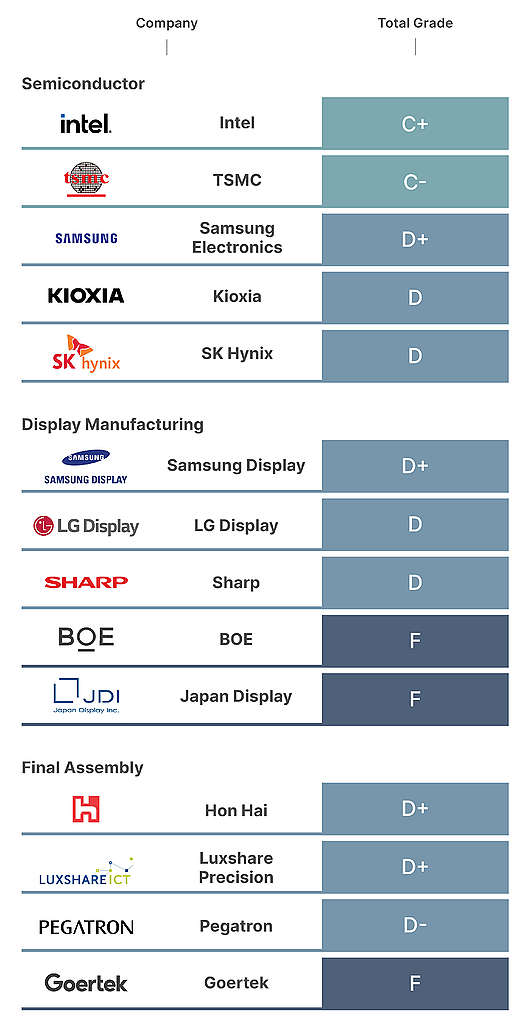Tech Majors Stumble On Emissions Due To Supply Chain Misses

A report by Greenpeace East Asia and Stand.earth claim that major consumer electronics brands rely heavily on coal and other fossil fuels despite making 100 per cent renewable energy pledges across their operations.
The global transition to green energy has increasingly seen the private sector increasingly stepping up its efforts to combat climate change. Not always driven by the right motives, it must be said. A lot of pressure has been exerted by activist investors, even consumer orgs, and of course governments in many cases. Firms have moved only due to a combination of incentives, subsidies, and now, when green power costs as much or less than conventional power.
The encouragement to transition could be seen across all sectors. A coalition of banks, pension funds, and asset managers committed $130 trillion toward achieving net zero by 2050. Major car companies and corporate vehicle purchasers pledged to accelerate their transition to low-carbon vehicles. That has finally driven entities across all sectors to ramp up efforts to reduce their carbon footprint.
Not Walking the Talk
Committing to specific goals is one thing and making sincere efforts to achieve those goals is another. If companies don’t walk their talks, the whole deal of energy transition may turn into a mere hoax which may end up discouraging the actions of other companies pushing their limits for the sake of transition. More importantly, it becomes more concerning if the companies defaulting on their transition efforts are leaders of their respective sectors.
One such unfortunate revelation has come forth recently of the biggest companies belying their promising efforts to transition. New research from Greenpeace East Asia and Stand.earth found that suppliers to tech leaders like Apple, Microsoft and Google rely primarily on coal and fossil fuels. Notably, the tech giants made 100 per cent renewable energy pledges across their own operations. In many cases, these pledges donot cover their extended supply chain, that was the focus on the study. That matters, simply because these diversified supply chains can sometimes be responsible for as much as 90% of total energy consumption required for a product.
The report ranked decarbonisation efforts by 10 of the world’s top consumer electronics brands and 14 of their largest suppliers.

Supply Chains are still Polluting
Tech giants such as Apple, Microsoft and Google have been quick to promote their climate initiatives and achievements. All three companies achieved 100 per cent renewable energy across their operations by 2018, outpacing their rivals. The report found that though these tech brands may have achieved 100 per cent renewable energy across their operations, their supply chains depend primarily on fossil fuels.
“Suppliers that manufacture components of our cell phones and computers, such as TSMC and Samsung Electronics, primarily use electricity that is generated from coal and other fossil fuels. Brands like Microsoft and Google talk a lot about climate action, but in reality, their supply chain carbon footprint has continued to grow. Consumer electronics brands must provide incentives and support for their suppliers to transition to renewable energy,” said Greenpeace East Asia campaigner Xueying Wu.
On average, 77 per cent of electronics industry emissions are generated from the supply chain.
Key Findings
The key findings of the report are as follows.
BREAKING: A new report from Greenpeace East Asia and @standearth finds that @Microsoft and @Google rely heavily on #coal and other fossil fuels despite having issued 100% renewable energy pledges across their own operations. [1/6]https://t.co/JcfWsJsA0A
— Greenpeace East Asia (@GreenpeaceEAsia) October 28, 2022
- Suppliers to major consumer electronics brands rely heavily on fossil fuels. Out of 14 suppliers to major consumer electronics brands, only four reported a renewable energy usage rate that exceeded 10 per cent. In 2021, the median renewable energy usage rate for all 14 suppliers was 5 per cent.
- Nine out of 10 ranked consumer electronics brands, including Google, Microsoft and Amazon, have yet to set a 100 per cent renewable energy target for their supply chain. By contrast, all 10 consumer tech brands have committed to 100 per cent renewable energy across their operations, and three have already achieved this goal.
- Microsoft is backsliding on supply chain emissions. In 2020, Microsoft pledged to reduce its emissions, including from its supply chain, by more than half within a decade. The following year, Microsoft’s supply chain emissions increased by 23 per cent. Apple is the only major tech company that has issued a 100 per cent renewable energy target for its supply chain and has made significant progress toward this goal. However, Apple has not disclosed detailed energy and emissions data for its supply chain.
- In 2021, TSMC and SK Hynix, two semiconductor manufacturing giants that supply Apple and Microsoft, reported renewable energy usage rates of only 9 per cent and 4 per cent, respectively. By contrast, Apple and Microsoft have both achieved 100 per cent renewable energy across their operations.
- Emissions from semiconductor manufacturing are on the rise. Since 2019, emissions have increased from Samsung Electronics (26.1%), TSMC (17.5%), Intel (13.5%), and SK Hynix (11.7%), four of the world’s top semiconductor manufacturers based on revenue. Collectively their clients include Apple, Microsoft and Google, among other brands.
It is high time that companies dealing in consumer electronics take into account not only their emissions but also emissions owing to their supply chains. Especially, the prospects of growth of electricity use in the sector. Electricity use is projected to grow by more than 60 per cent between 2020 and 2030.




